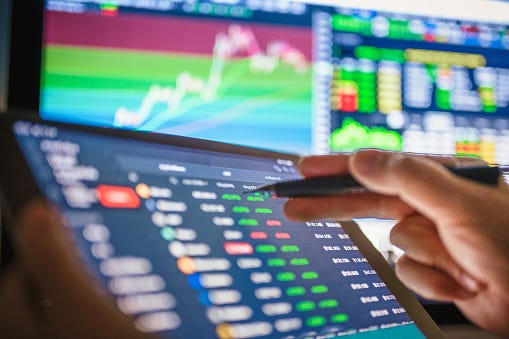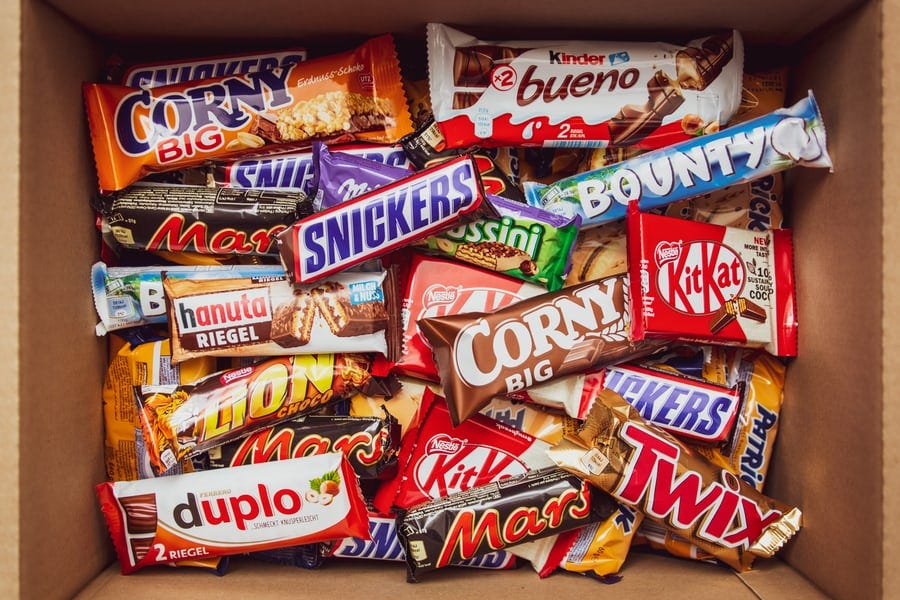I’m a capitalist and generally believe well-functioning efficient markets do in fact improve lives. I’m also a Gen Zer and a work-in-progress so don’t @ me.
Climbing the socioeconomic ladder is a fruitful goal as long as the motive is other than creating capital in a self-serving way.
Anyways, past a certain household income of ~$200k, one’s happiness will plateau since their needs are already exceeded so might as well fill your time with something more audacious than more Uncle Sams you need to pay half back by April 15th.
Thanks to capitalism, everyone has more control. If a company you’re heavily invested in or may only own fractional shares in starts engaging in deals you don’t approve of or has an iffy board, thanks to capitalism, shareholders have the right and powerful privilege to plunge the stock price which can leave a big enough dent on the company to end up being delisted from its respective exchange or worse, out of business entirely.
This is one of the many reasons why many established companies delay their public debut. Only naive startups believe going public is glamorous, somehow steadier, and pays for itself once the POP pops by 11 am, until your shareholders revolt or overnight news breaks that your main and only product glitched.
Of course, any system, especially beyond a healthy balance, isn’t strategic.
Capitalism by nature isn’t always advantageous as the divide between the rich and poor tends to drastically widen over time and regulatory crackdowns on the private sector, especially Big Tech’s anti-trust influence becomes harder to tame. Since the start of the pandemic with inflation now nearing 8% eating away consumers’ purchasing power, wealth inequality has only risen, hurting the most vulnerable and lowest wage earners who are seeing stagnant wage gains across the board while the top 1% seem to be living their best lives.
Luckily, although there is quite a lot of speculation a recession is brewing due to a yield curve inversion (short-term 2 yr Treasury yield > long-term 10 yr), rate hikes, geopolitical tensions, oil price spikes, near hyperinflation, end in trillions of bond-buying stimulus, and supply chain bottlenecks, according to consumers’ resilient balance sheets and trillions in savings, they are shopping till they drop and are relentless!
Carnival Cruises just recorded their biggest weekly gain in bookings in history! Not even leveling to pre-pandemic levels — rather outperforming them entirely!
A recession is defined as 2–6 quarters of GDP decline with rising and moderately high unemployment, stubborn wages, job losses, and low to moderate inflation. The exact opposite is happening now. There are currently more jobs to fill than those that are looking to fill them and employees with immense bargaining power to boost bonuses, flexibility, and free Pelotons, only its bike, not its stock options.
According to the largest economies, the U.S. and China, although one is in full lockdown mode unable to confess their country isn’t fully inoculated nor strategic blocking the truth and the economy is projected to report negative GDP growth by year’s end, what is certain about both countries is that its citizens have always been fully engaged and obsessively follow an inflationary lifestyle. AKA the HENRYs.
One of the greatest things I’ve ever heard that rewired my mindset about life and in fact first encouraged my journey with the stealth wealth minimalist frugal revolution is that the most successful people don’t care what you buy or do, they care how you interact and work with them.
Ultimately, people are just like you. They care and remember how you make them feel.
Will you regret at the end of your life what you didn’t buy or the mistakes you made?
Heck No.
You will regret the risks you didn’t take and not going for what you deserve. Sadly, we still live in a world where obsession around titles, looks, and materialistic goods rule the world and it’s only getting hotter moving into the digital economy this time through NFTs and collectibles asking triple their physical value in the decentralized blockchain.

Sticker Price
Consumers are sticky. They love what others have because they are convinced the grass will forever be greener on the other side, until of course they step on it and realize the Joneses are going through a divorce, indebted, scared, and have dog poop all over their yard. At least in the Big Apple, what I’ve noticed is that pedestrians that look like stars are usually the least well-off and financially in ruin. Those that have no need to impress others and are secure are flourishing inside and blend in outside, the perfect mix.
This perception that people have it better is flawed. We all put our best selves out there. Life is a sale after all folks! Yet comparison is truly the theft of joy and will always make you miserable. The best rule of thumb before we discuss envy-inducing realities is that people don’t pay attention to you as much as you think they do.
So impress yourself, no one else. If you have no faith in crypto and really aren’t interested, don’t buy into the dips. A piece of mind will always provide a stronger ROI in the end since health = wealth.
This feeling is found most evidently with luxury goods. China has the largest consumers of luxury goods, spending on average ~$73B in 2021 up 30% from 2020 ahead of the U.S. since the obsession with wealth and showing off is rampant in big metropolitans, although the tables are slowly turning and instead of flaunting what one is wearing, they are flaunting their JPEGs and desktop files. How glamourous.
Nowadays, luxuries aren’t only out on Fifth Ave or Hollywood Blvd, but flourishing online. A place that once was opposite of scarcity, wealth, ownership, and authenticity has now boomed in the past few years amidst the pandemic as NFTs (non-fungible-non-replaceable) digitalized assets linked to collectibles, figures, people, artifacts, artwork, things, and anything that can be digitalized is a hot commodity now.
Since NFTs represent scarcity, ownership, and authenticity on the decentralized land, this is encouraging more to follow the trend of the stealth wealth movement yet it comes with a hefty price tag for something or absolutely nothing, but that’s what makes it more desirable!

Bruised and Better?
Our brains are straightforward yet completely flawed. When we see more, larger, or higher, we assume it must be better. This can be applied to people, things, toys, luxuries, stuff, you name it, we are convinced it is true, messing up our psychology. Yet every time you get more of the same thing, think ice cream or handbags, you tend to dislike it more.
Although too much food feels sick, with NFTs, they are non-fungible, which makes them immune to being undesirable as an irreplaceable asset. This is a secret many of the world’s top products such as the iPhone embodies as the number one top-selling consumer product for the wealthiest billion people in the world.
As private property and ownership are central to capitalism, and economic activity increasingly moves online, NFTs may become central to our economy and past our price points for the average consumer, not only made for the affluent investor.
NFTs boosts the internet with what it lacks: Scarcity and Authenticity.
As a 2T dollar asset class, Bitcoin has now become a hidden wealth symbol, a brand of some sorts. Fyre Island 2.0?
NFTs offer the potential for creators to collect royalties each time their art is sold in the secondary market through the OpenSea platform for example. Remember LimeWire, Napster’s replica in the 2000s? They are launching an NFT marketplace for digital music records. Retailers are tapping into the NFT space becuase they can with an unjustifiable price and are almost certain they will get demand.
If Beeple can sell an NFT for upwards of $70M, LVMH can sell a scarf for $6k within minutes on the marketplace becuase it tastes, looks, feels, and signifies better. Branded cars look better than non-branded cars. An Airbnb in the Rocky Mountains looks 10x more fun after watching a branded advertisement. As a stealth wealth advocate, although this is number one on the no-do list since flashing logos, brands, and wealth can harm your reputation, health, and livelihood, collectibles are a different ball game since they are a precious investment.
The younger one is, the more likely they are to be associated and attached to brands through brand equity. That’s all they know so they associate themselves with a tag line or logo to stand out and build rapport yet over time, it will wear on everyone and your wallet.
Nothing is wrong with supporting your favorite labels as long as you don’t take it too far. To really stand out, be you and down-to-earth. It will serve you surprisingly better since everyone has a better story to tell without a Rolex.
Price increases desirability yet don’t be fooled by what you are getting into. Intellectual property, ownership, and scarcity are traits to look out for, especially in the booming digital economy.
If you don’t understand or cannot see yourself using it, keeping, or hanging up that awfully disturbing painting, before gasping at the price, take inventory of the item itself. Is it for show or for your portfolio?
Pay attention to what you need not always want even if you can afford to live more freely and unapologetically. Remember, everything and as always, everything has an after-price, especially the higher it is.
Something will always have to be maintained, cleaned, looked after, shoved into a closet, hidden, backed up, stored, and cared for. Even if you have the capital, time, funds, and staff, if it’s not worth collecting and knowing you have it, it’s not worth keeping.
Lastly, never invest more than 20% of your capital into 1 thing. You’ll thank me later.

